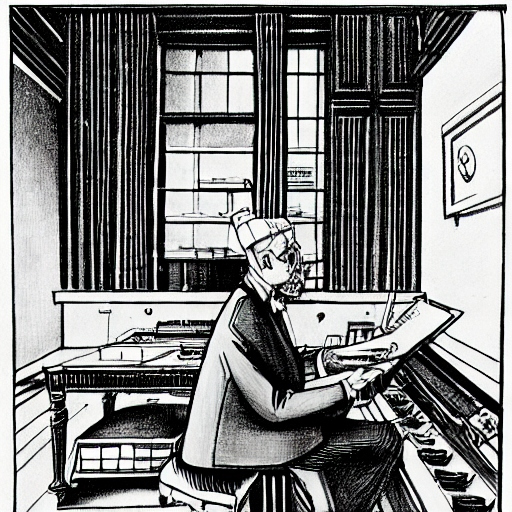So, I have been mostly self thaught programmer (C++), as its a big part of my job (not a regular developer). But so far I have been using a simple text editor like Geany to code and I compile stuff either in terminal (linux) or produce my own make file.
I am starting to wonder if I should switch to a full IDE, as I am on linux, I was thinking of trying KDevelop. But I am simply not sure if its worth, do I even need it?
I have never used an IDE, it seems kind of complicated for the start with “projects” and I havent really found any good introductions to how this workflow is supposed to work.
Do you think using and IDE is something everyone should use? Or do you think a text editor with producing your own make files should be enough?
In this Thread: people telling you how IDEs suck then proceed telling you how to turn their terminal based text editor into an IDE
There’s a learning experience to it though. When coding in intellij I’m just using writing some java without deep understanding how the build system works ans what’s done underneath. Setting up some nvim with lsp forces you to focus more on the whole process so I’d say it can be beneficial
Yes but people should also factor OP’s experience into recommendations. They are not a regular developer, self-taught programmer who uses C++ for work. They are probably not familiar with many build-chain internals, command line debuggers, and compiler search paths. So while everyone in this thread can probably agree that something like code completion is better than not having code completion, I think it’s also fair to get op started with something quick and easy like VSCode and then once they are comfortable they can go figure out how to install cool plugins for neovim
Yup that’s also true, I’ve hit the wall multiple times when trying to use vim/emacs. Now I’m in neovim and feel like I get a better understanding of buildsystems but I won’t say it’s something that everyone should start with. I don’t know what the C/C++ intellij is though. On windows it’s probably visual studio. On Linux maybe vscode but I’d say if op wants to try some morw serious ide then clion may be a better choice
For beginners you’re right, but once you’ve done that one time and understand how it works, it no longer provides value and often results in slower productivity.
Yea I put it into the same category with manual arch/gentoo installation. It’s definitely worth to do one time and understand the process. Then it’s up to you whether you want to have stuff that just works out of the box or you find pleasure in tinkering and customizing the environment along with trying to get things done
It’s less about “sucks” and “not sucks” but the point I think is important is that IDEs are generally a closed system. You can’t modify them very much, if at all, to fit your needs. If the IDE out of the box is a good fit for your needs then by all means use it! But if there comes a time that you need to do something that isn’t supported by the IDE you either need to drop to the command line or attempt to hack together some solution in whatever limited extension language/API they support. Or hope that an extension already exists.
Vim, emacs, and other programmable editors make it easy for you to do that one specific thing you need to do. And there is very likely already a package/plugin that someone made for it. But if there isn’t, it’s so much easier to modify a programmable editor than a closed IDE.
So really it just comes down to what do you need from your editor? Now if you’re someone like me, I need to try to perfect the way I program. Always trying to find the most efficient way to do some common operation. But if that’s not you that’s totally ok (and honestly I envy you lol)
If you try out an IDE don’t feel obligated to have to use every feature of it just to justify using it. Just use it much like your text editor to start with and learn the extra features you go.
I use vim, and I can safely say, it was worth bothering to learn it and set it up, ESPECIALLY if you make a career out of it, and one time I had a friend who didn’t use an IDE and I showed him how much easier it was to do certain things on vim and he felt very very stupid for using notepad.
Interesting question. Personally, I started with a text editor transitioned to vim, then to VSCode and now I’ve settled on a customised neovim install.
I’m a believer of PDE, that is personal development environment. It’s a concept one of the Devs of Neovim TJDeVries talks about.
In essence it’s the idea of building your development environment how you want it. Personally, Neovim allows me to do this. For example, I have a VSCode style debugger, incredibly fast searching with ripgrep, vim keyboard shortcuts and uses the same language servers as jetbrains products.
Here’s a link to his full conversation on the topic: https://youtu.be/QMVIJhC9Veg
Stay awesome!
Can you elaborate on your debugger?
I’ve been trying to switch to neovim, and I’ve got a pretty decent setup with treesitter and also lspconfig. My search and debugger are still non-existent and I’m not sure what is best.
I write python and c/c++ (for MCUs) at work, and I’m curious what the state of integration with potential debuggers is.
I think there are two key aspects to IDEs:
a) the larger the codebase and the less familiar you are with it, the more of a nightmare it will be to hunt bugs or search places to insert code; this is where an IDE becomes extremely helpful by e.g. letting you search a struct across multiple modules, showing lints, compiler errors etc.
b) IDEs are only as helpful if they can be configured with your codebase, and sadly there are probably numerous codebases that won’t play nice and let you crate a working config
There are “simple text editors” with IDE like features also, like neovim configured with LSP, Helix aso. And for languages that will infer types, it is really nice to have the editor show the types as inlay hints.
I think you should give (mostly) everything a fair try. At least anything that’s “different” than what you’re used to. As a programmer, you should always be striving to improve your workflow. The ideal workflow is different for everyone. The standard text editing experience with a mouse / using control arrow keys etc to navigate is fine and familiar. But you should really at least experiment with modal editing like vim or kakoune. Beyond just the way you type text, the way you interact with the editor (and by extension the project you’re working on as a whole) is important to consider too. Make files are a great way to simplify those complex commands you run, but there may be a way to achieve those actions in the editor you’re using. Compilation, testing, and running code is just one thing. But what about something like git? Magit on emacs is an example of an extremely well thought out integration of git into an editor. Autocompletion is a whole other story, but you can get that in mostly any kind of editor with LSP integration.
Anyways the point I’m trying to make is that you should never be stagnant in how you program (editor) and what you program (language, paradigm, domain, etc).
Only time you should be stagnant is once you’ve at least considered the other options and you know what works for you. :)
As hiajen said, most IDE’s simply aren’t as useful for lower-level languages like C++. And while communist suggested vim, I would say that something along the lines of helix-editor would be a bit more user-friendly, and just as extensible :)
When I first started programming I used a text editor, UltraEdit32. When I moved into .Net, I initially used Ultraedit and wrote all my own build files, but switched to using Visual Studio with all the bells and whistles. When I moved to Python/Node I adopted Vim, and these days I tend to use Doom Emacs.
There’s a spectrum from visual studio or eclipse, with complex project structures, through vscode and rider which are simpler, to programmers editors like Emacs or neovim, to plain editors like nano.
I think the most important thing is that you’re comfortable with your tools. I could crunch out a lot of code with Visual Studio and Resharper, but I use Emacs as an IDE, note taking tool, and email client . The familiarity makes me productive.
It is super helpful to have syntax errors or warnings highlighted when working on code, and a decent editor will make it easier to navigate code - jump to the definition of a function, find the documentation for an API call etc.
As codebases get larger, you need all the help you can get. You may also find, when you work with others, that their opinionated tooling clashes with your opinionated hand crafting.
The line between IDE and text editor is kinda blurry nowadays anyway. I don’t know that much about Geany, but many of the text editors I’ve used were basically full IDEs, except that the IDE features were opt-in.
Currently I use VScodium as my editor, and I’ve been happy with it. I hear a lot of good things about Kate too, and as a KDE user, I feel like I should try it some time. Kate to me looks like the same spirit of text editor as Geany. Maybe if you’re comfortable with that style of editor, give it shot.
The 2 editors that have really been catching my eye lately have been Helix and Lapce. I think it’s really cool that Helix went with a Kakoune style “selection → action” system instead of the normal vim style “action → selection”. I think Lapce is trying to be a similar style of editor to Vscode, with simple IDE features by default, but then an extension sytem to expand that. Maybe an editor like that would be approachable to you. Although unlike Helix, Lapce seems to be less production ready for now, so maybe wait on that.
For now you could of course just try VScode (or VScodium if you’re like me and want open-source software) since that’s a popular one right now.
I was looking at Kate as Geany does not seem to get a lot of feature updates, but unfortunately i dont have KDE at work and there does not seem to be a flatpak version of Kate.
I did not know about VSCodium, and I do actually prefer open source software so I will check this out. Thanks
Step by step debugging is very enlightening when it comes to inspecting execution. If your current setup doesn’t include that, I’d strongly suggest to revise it.
I usually use a text editor in day to day, but when I say text editor, I mean something a little more full featured like emacs or sometimes vim. It’s quite valuable to have something that can integrate easily with a debugger and has navigation + completion features if you want to go the text editor route. I hadn’t heard of geany before, but it looks like it can do at least that much.
For C/C++ and make, I use geany and a terminal. Right now, out of curiosity for GitHub Copilot, I’m trying VSCode, but it’s a bit too much for my taste.
The only situation I would use a big IDE would be the development of a user interface for a Visual C++/Windows project or a Unity game. Hopefully, most of the time I don’t have to.
I’ve been doing development in many languages over the years, including C++, Java, Python, and Go. i do everything from the command line: tmux for multi-tasking, vim for editing, the specific compiler and other language tools, makefiles, grep, etc. I am plenty productive, and I find the speed and generality of the tools I use make up for the features an IDE might have out-of-the-box and that I have to either take a couple more steps to accomplish or write some kind of script to help with. Basically “the command line is my IDE”. Also nice to not be dependent upon a windowing/desktop environment to get stuff done. Nice and portable and lightweight on dependencies.
I don’t feel like I have to make that decision anymore.
I use Vim and VSCodium, because I can enable IDE functionality gradually, and only enable what I need.








